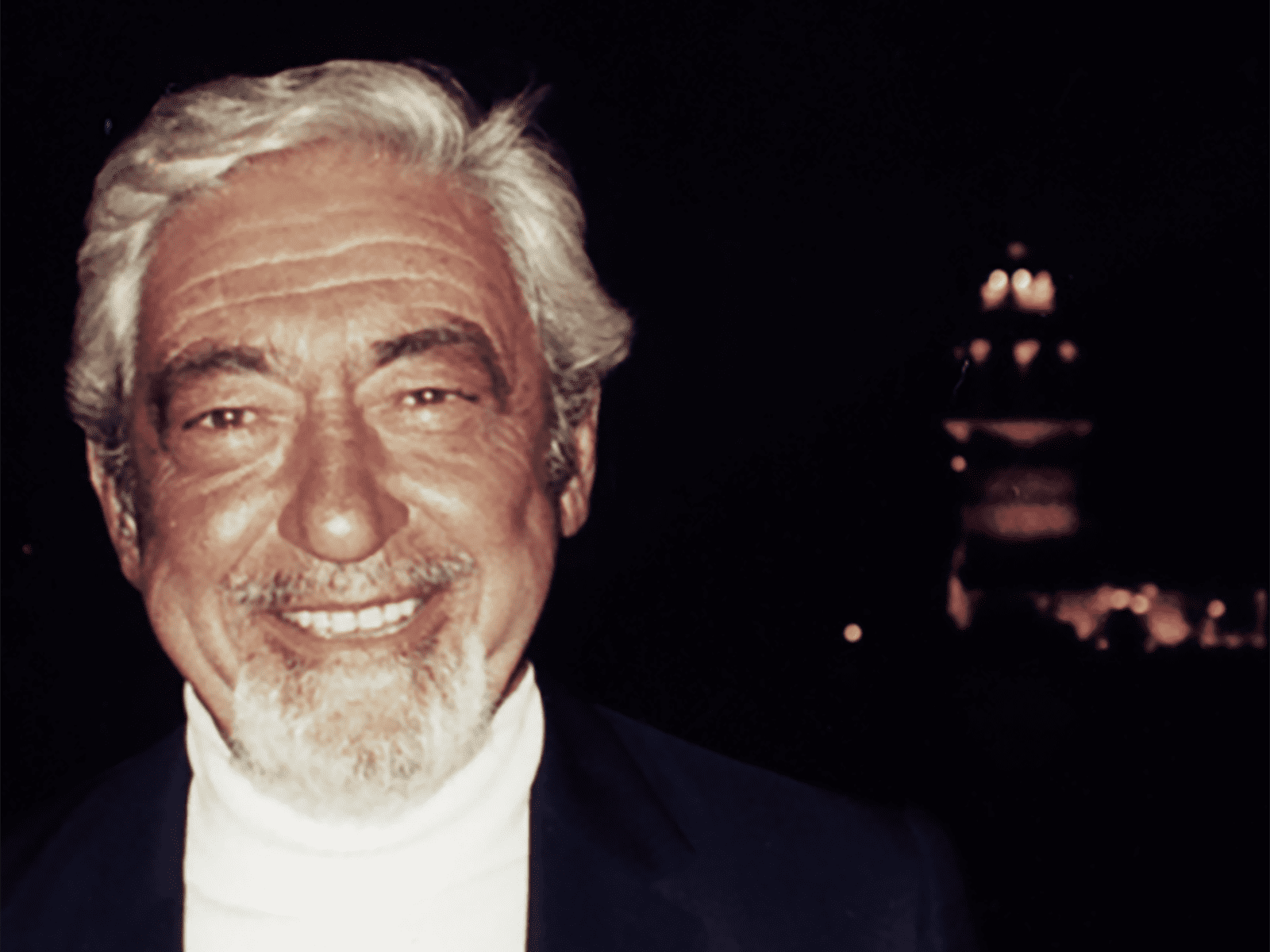We Will Float This Ship Together!
Kısmet Deniz Polat, Sadun Boro's greatest assistant during his travels with his wife Oda and his cat Miço, and a living witness of his magnificent voyages, pioneering thoughts and boundless dreams, continues to work to carry his father's legacy to future generations. She rereads Sadun Boro's works for us in this article, and traces his writing and powerful sentences that are overlooked behind the splendor of his travels.
Kısmet Deniz Polat
Through his voyage around the world, Sadun Boro became a hero who inspired many people who were not interested in the sea, encouraged them to dream, and most importantly, gave them the courage to make it come true. Together with his wife Oda and their cat Miço, and me, Deniz, who joined them later, we were a fantastic family living on the seas on the sailboat Kısmet. I was born into that life, that was my normal.
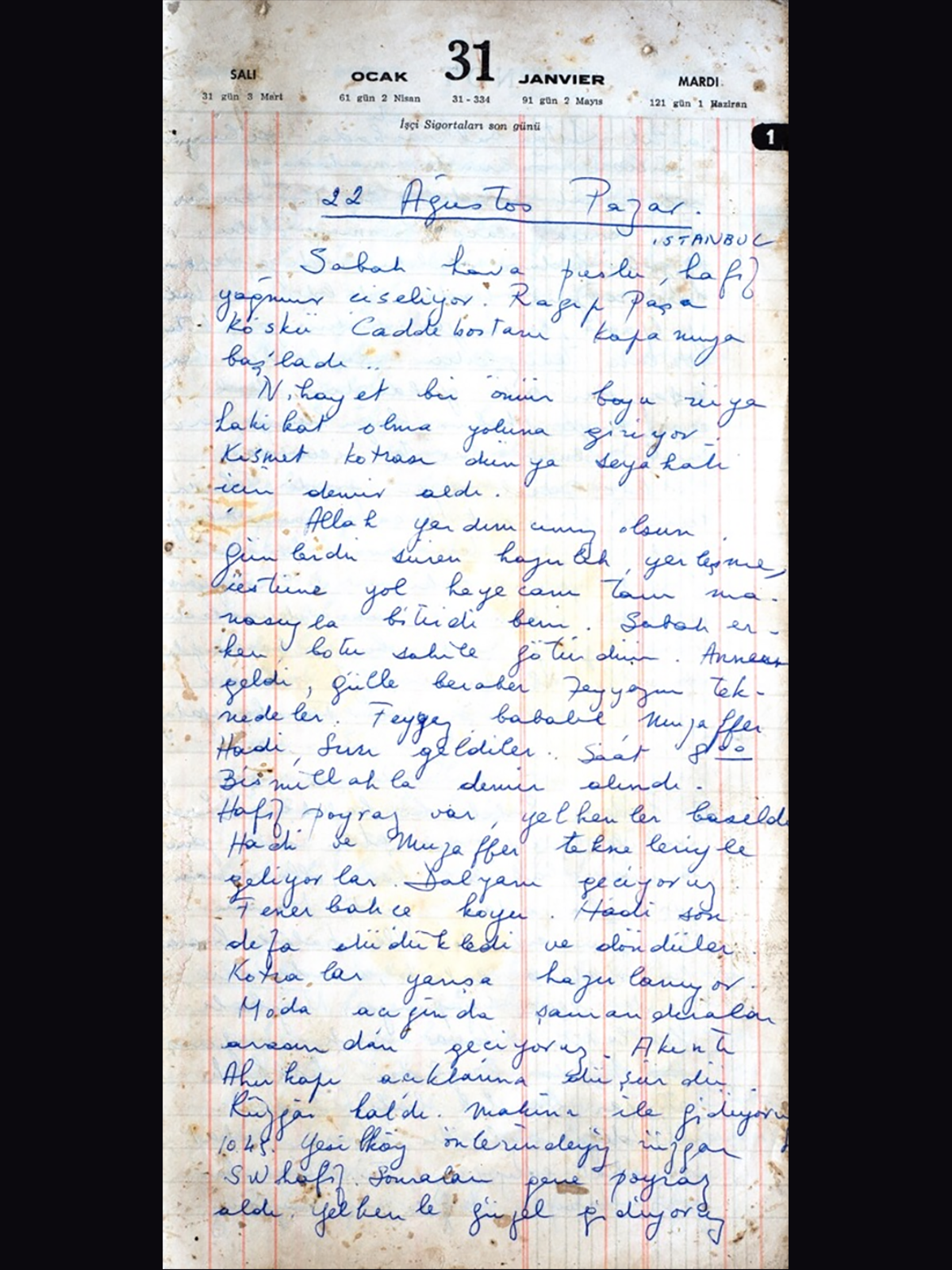
After I sent Kısmet to the museum, Miço, my mother and father to their final resting place, I was the only witness of that life. It is my duty to preserve it in all its authenticity. For this duty, Sadun Boro, with his foresight, had left us gifts as extraordinary as his life. His works and books will carry him vividly into the next millennia. I hope that he will be appreciated, understood and his legacy will be preserved. In this article, I would like to talk to you about a very important aspect of him that has not been emphasized, his "authorship".
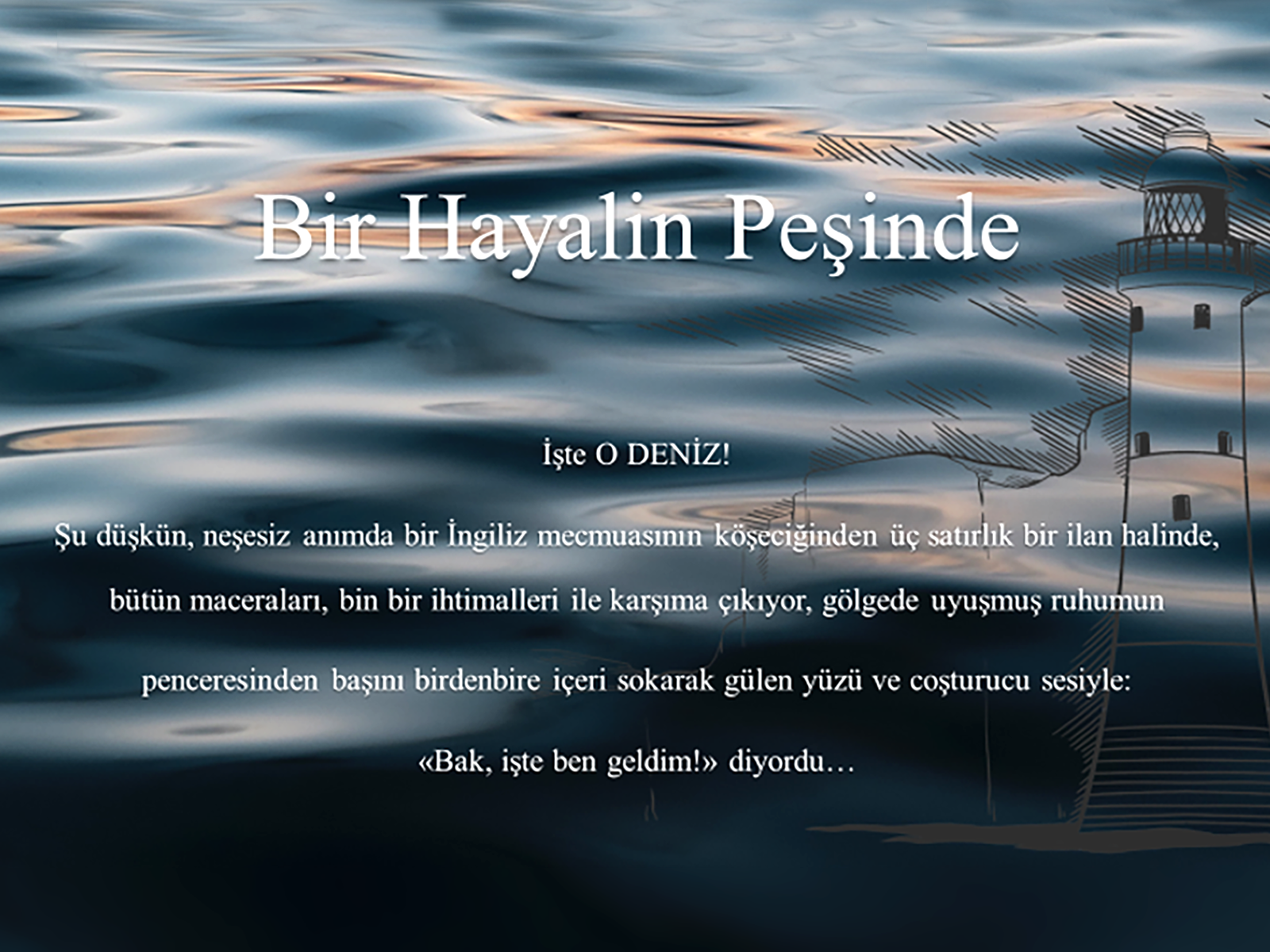
Sadun Boro was only 23 years old in 1952 when he set out on his first open sea voyage. His voyage, under the pressure and guidance of Ali Rıza Seyfi Bey, nicknamed Dayıbey, whom he knew from Caddebostan, was published in Cumhuriyet newspaper. Dayıbey not only taught him the intricacies of writing, but also started Sadun Boro's adventure as an author. This experience would pave the way for him to share their travel around the world with his wife Oda with Turkey in the future. In his book Hayalin Peşinde, 1952’de Bir Atlantik Serüveni (In Pursuit of a Dream, An Atlantic Adventure in 1952), he narrates a young voyage with humor and excitement, while at the same time paying his debt of loyalty to Dayıbey and introducing important sailors and books that influenced him.
I think encouragement was one of the most important elements he paid attention to when writing. His mastery in describing emotions draws the reader in and makes them feel part of the adventure. Another characteristic is his commitment to reality, to the tangible. He meticulously recorded the information every day in his journal. Where the wind blew, how strong it was, the waves, the depth, the weather, whether the pressure was rising or falling, whether any fish were caught, the shifts, the lighthouses... everything that happened in a day was noted.
On a sailboat in the open sea, one is only between the sound of the wind and the waves, even talking feels like a strain. Since the boat is constantly moving, you align with this magnificent presence along with it. If your boat is a wooden boat like Kısmet, you will hear sounds reminiscent of a whale, such as rasping, moaning, shaking, rattling, a kind of language of its reactions to the sea and the wind. Even while you sleep, you listen to that language and read what is happening around you. That's why such small wooden boats are likened to a mother's womb. A sense of security in the middle of a vast ocean, embracing you as if you were in your mother's womb. Thus, you develop the ability to keep track of your entire surroundings with your body. This experience can make one a poet. It is certain that it made Sadun Boro one of the most successful nature descriptors in our literature. Nature becomes humanized and translated into humanity in his descriptions. Through his descriptions, he takes modern man from his loneliness and unites him with nature. Here is an excerpt from his book Yeni Dünya’ya Fora Yelken - Kısmet’in Atlantik ve Amerika Seyahati (Under Sail to the New World - Kısmet's Atlantic and America Voyage):
The next day, the trade winds were favorable, blowing from a east-northeast wind. Kısmet, too, stopped being lazy and started running after the sun again, her white foam mustache on both sides of her stern. P.76
Another excerpt from the same book:
A blue dome above us, a vast blue world below. What a peaceful and happy life we have in this little world of ours, where Nature rules instead of the rules of the society we live in....... You forget about the evils of the world and start to see everything through rose-colored glasses, or rather blue-colored glasses.... P. 98
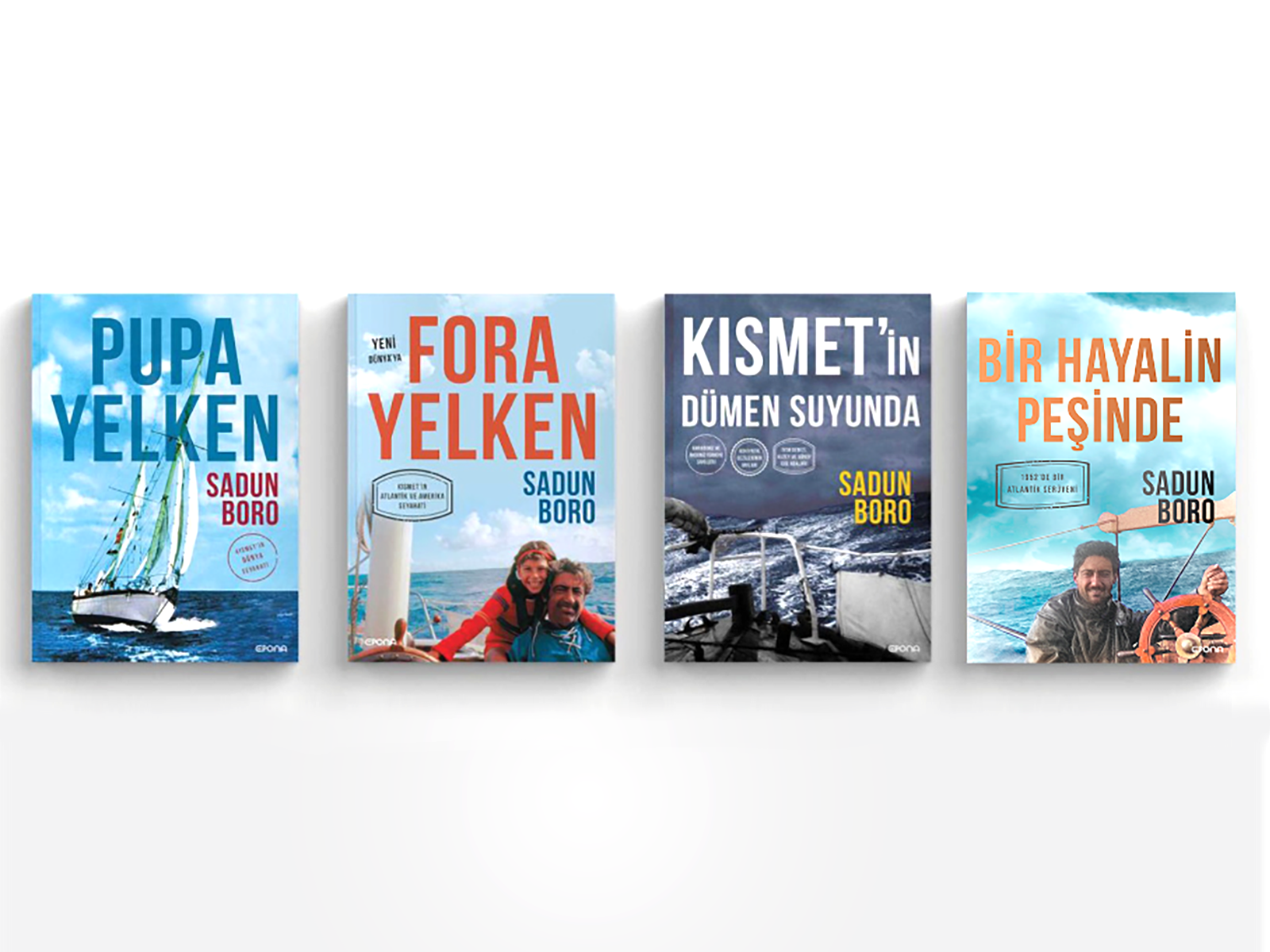
Another important aspect of the seas is that they cover three quarters of the globe. When you look from the sea, you realize that artificial borders, countries, flags, in short, everything that belongs to human beings is an attempt by societies to survive. Just like hitting the cell wall, some ports do not welcome you, while most embrace you with curiosity. Much like an ethnographer, an anthropologist, Sadun Boro provides us with important observations and information about the places and people he visits. These are the findings of that date, that day. The world has changed and his books are invaluable witnesses to this. They teleport you to that day like a time machine. Thus, people from various nations come together in the land of the endless seas. Information about boats, needs, places to go, so many things to consult and share!
Belonging to the seas not only enables people to comprehend their own culture and the meaning of being Turkish, but also includes them in the "union of those who have submitted to the seas". This fluid state makes sailors resilient to a life of hardship, keeps them close to their loved ones even when they are far away from them, and makes them sail far away when they are with them.
Pupa Yelken (Full Sail) is the book of his voyage around the world that had a profound impact on Turkey. It reached millions under the support of Haldun Simavi and the media management of Necati Zincirkıran. It was serialized in Hürriyet Newspaper between 1965-68 and when they returned, around the time of my birth, my father also published the book. Sharing such a trip with the whole of Turkey through a newspaper is a case that should be studied and taken as an example in our media history.
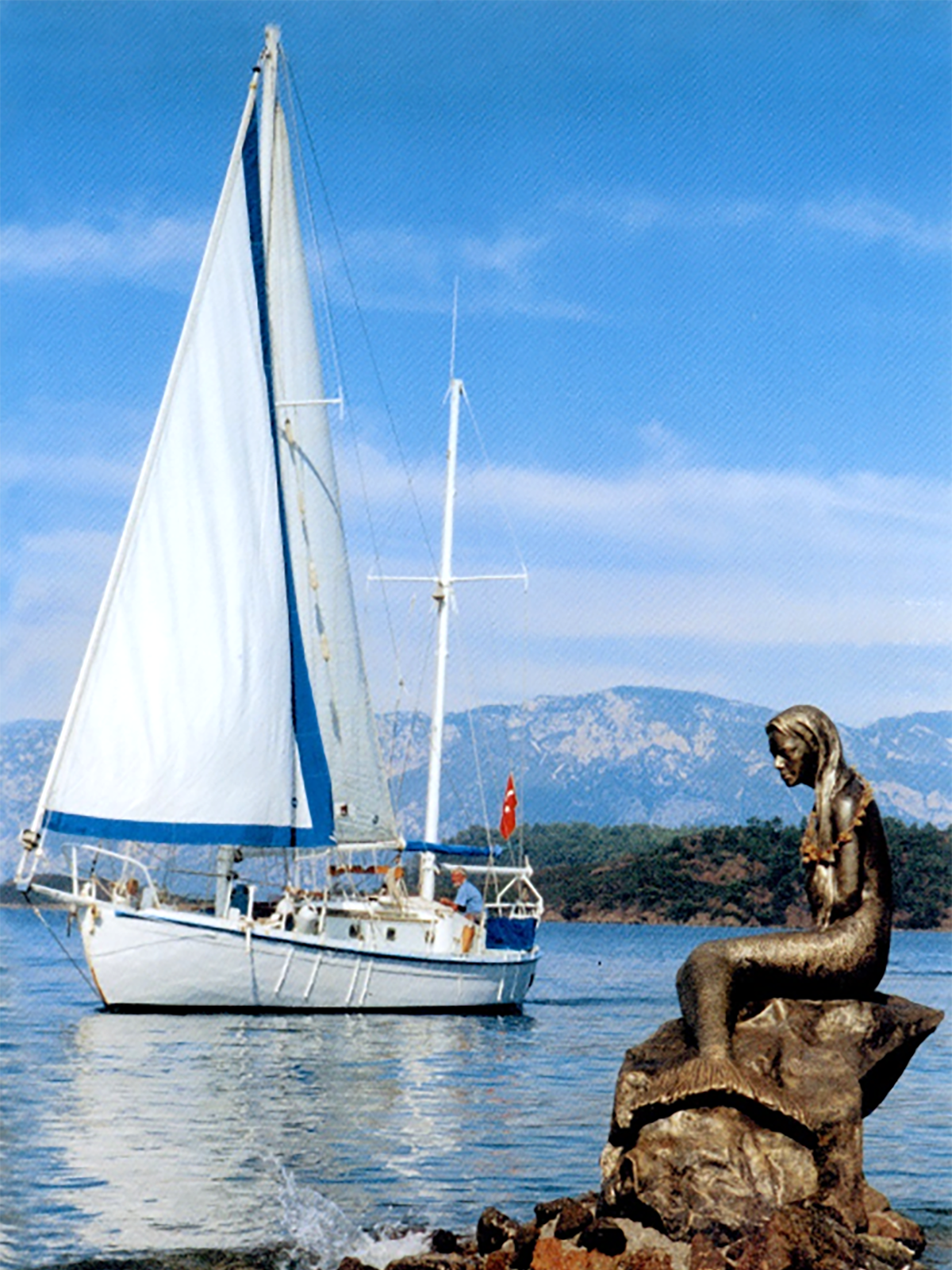
Let's talk about the story of his second voyage, Kısmet's Atlantic and America voyage. The book, Yeni Dünya’ya Fora Yelken (Under Sail to the New World) in which he describes this voyage, is different from the others. That is because Oda and Sadun Boro are focused on a child. I was eight years old when I started this trip and ten years old when we finished. This voyage was carried out on a boat with no communication technology, navigation by sextant, and everything was manual except for the second-hand radio that had to be bought in America. Today we live a digital life, whereas this trip is one of the last sea voyages of the analog world. The two years of school vacations I spent between 1977-79 are still in my mind like a movie, down to the last detail.
The last book I would like to talk about in this article is Kısmet'in Dümen Suyunda (At the Wake of Kısmet). It is because we have not yet been able to touch up and publish Vira Demir, Türkiye Kıyıları Seyir Rehberi (Weight Anchor, Navigational Guide to the Coasts of Turkey), which stands like a mountain in front of us, and we are working on it. That book is a work that deserves an article in itself. In Kısmet'in Dümen Suyunda, he describes the Black Sea and Mediterranean coasts, including Cyprus. Although this is not a travel guide, it provides enough information for anyone who wants to travel. It is a combination of different voyages departing from Bodrum during the summer months. It includes memoirs of his voyages in the Ionian Sea, the North and South Aegean Islands and the Adriatic. Those are inspiring voyages even for those who are not sailors. Moreover, since he describes our own waters and neighboring seas, they are easily accessible. Ocean voyages may not appeal to everyone, but with a little effort, anyone can reach the beauty nearby.
Nowadays we are all tourists, we flow through the paths opened by a big industry, our experiences are decided by others. Being a traveler, on the other hand, opens up your own paths and allows you to have richer and more enriching experiences. Each of Sadun Boro's books are doors to different worlds. The pleasure of traveling in our own language with his beautiful Turkish is the vast horizons that open up from our culture. I will end my article with Sadun Boro's wish about the mermaid from his book Vira Demir:
May your winds be easy, your bows be clear and your spirits be high!
Photographs: Kısmet Deniz Polat archive


